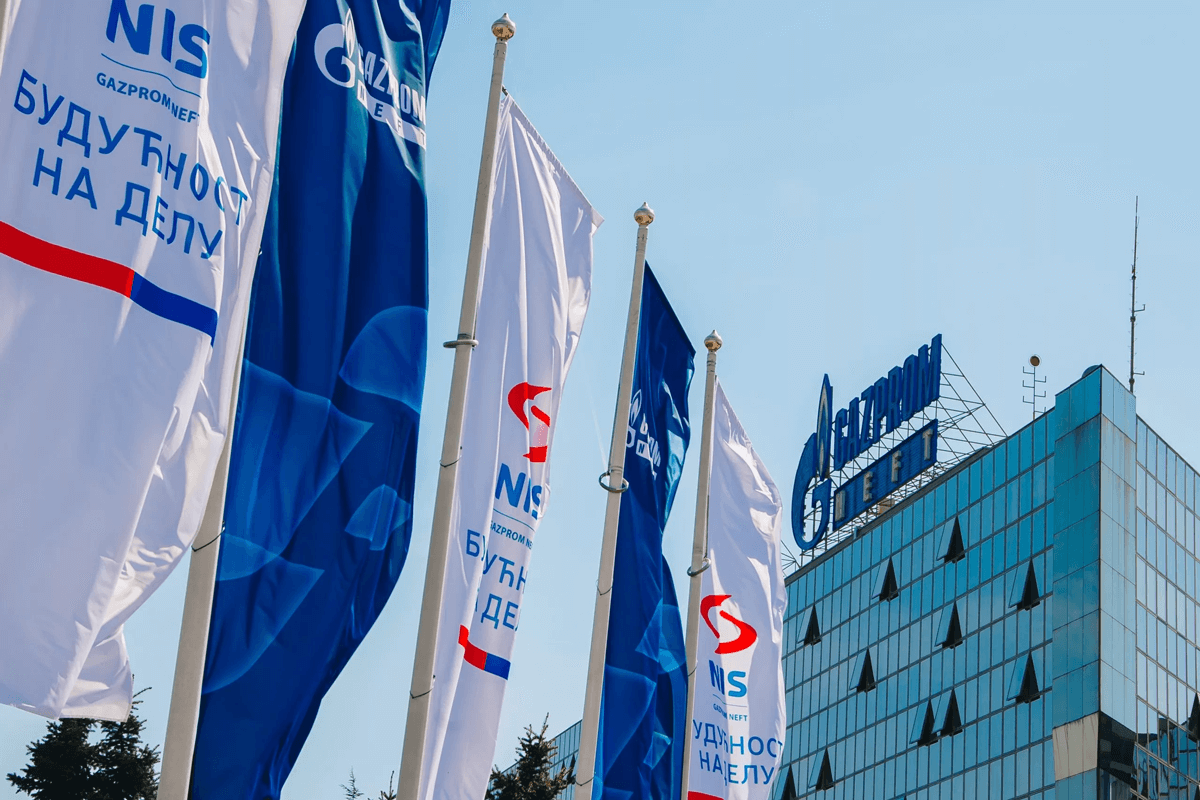The circle has closed. On the last day of June, NIS joined a sad group of more than 45,000 companies and entrepreneurs (data for 2019) whose account was blocked. One of the largest companies in Serbia and the region, a de facto monopolist, whose majority owner is Russia’s Gazprom, experienced a blocked account at the end of June, due to slightly more than 257 million dinars, or two million euros. From the historic agreement, as its signatories called it 12 years ago, by which Serbia accepted total energy dependence on Russia, we came to the blockade of accounts due to a million deficit. Is this blockade of NIS accounts the same as the South Stream gas pipeline, another important part of the 2008 Serbian-Russian energy agreement, which was never implemented? At the expense of the Serbian side, of course. Are we, with the NIS account in the blockade today, at least a little closer to the realization that the energy agreement with Russia actually impoverished this country, by at least four billion euros, by lowering the national oil resource to the level of the company in the blockade, for the never implemented South Stream gas pipeline because the Russians did not submit any compensation… Are we at least one step closer to accepting the reality that the energy pact from 2008 was worthless, even harmful for Serbia, and useful only for Russia? Because of that, no government, starting with the one that concluded the agreement in 2008 (Tadić-Koštunica), and until today, did not want to confront the Russians, because, for God’s sake, of its political support regarding Kosovo. Despite the fact that Moscow did not participate in international processes in which the Kosovo issue was decided, neither in 2008 nor now, nor it has no influence on them. Its basic interest in relation to Kosovo is that there should be no solution, and that Serbia and the entire Balkans should suffocate for as long as possible in an unresolved conflict in which it sees the only chance to exercise its economic, political and security influence. And in the end, to leave the only possibility to an exhausted, backward and hopeless Serbia – to join Putin’s circle.
If we can no longer make up for the lost billions from the deal on energy dependence on Russia, can we at least now try to get out of the political dependence on Moscow, which we also entered into by accepting the rotten energy pact? This is a good opportunity for that now, not only due to the catastrophic fact that the flagship of the Serbian-Russian brotherhood and partnership – NIS, entered the black quarter of the Serbian economy, in the circle of companies and entrepreneurs who were blocked for at least one day.
If there may have been some dilemmas about which direction Russia will move in the coming decades, those dilemmas have been scattered by the just-concluded referendum on changing the federal constitution. More than two thirds of the Russian population, which has been declining for decades due to emigration and low birth rates, said that they agree with Vladimir Putin’s wishes to gain tsarist powers and make his presidential term practically lifelong. This country, therefore, definitely does not want to be democratic, legal, open and in solidarity, this country does not want to be part of the European cultural and political space, which inherits these values as its foundations.
Russia is building alliances with its peers, with societies that also do not want to be part of the European civilization, cultural and political circle, with societies that want a “strong hand”, autocratic leaders, lack of institutions, oriental economic relations, limited freedoms… In the Eurasian Economic Union, led by Russia, there are also Belarus, Armenia, Kazakhstan and Kyrgyzstan, and the economy of this club is with 2.1 trillion dollars a year, at the level of Italy, for example. The defense, security alliance known as the CSTO, also led by Russia, has the same members, and with them is the powerful Tajikistan.
With the just-completed referendum, Russia, therefore, very clearly confirms that it wants to remain in this and such a circle of states and peoples, because it shares fundamental social values with them. And that is quite fair. It is also fair that Russia makes such alliances (similar to itself) not in order to be an ordinary member in them, but exclusively and only – an unparalleled leader. Its never-extinguished imperial feeling, with such an association, certainly restores the illusion of great power. Because it is much harder to accept the cold assessment that Russia today is “a second-class, totalitarian state with less than 4% share in the global economy, led by an authoritarian leader”, as described in a recent research article by legendary American journalist Carl Bernstein, along with Bob Woodward, reporters on Watergate.
Russia, therefore, “outed” itself with the recently completed referendum. It said clearly what it wanted and said that it wanted it in the long run. Maybe it’s time for Serbia to “out” itself in accordance with that. Does it really want to belong to the circle of societies led by Russia and is it really ready to subordinate its ambitions and future, prosperity, social well-being and wealth, to some fictitious emotional connection with Russia and its people? Or Serbia wants something else, something that lies on the other side, the one towards which, unfortunately, we still have border crossings and on them, unfortunately, kilometers of columns of Serbian workers, students, doctors, professors, but also trucks with quality goods intended for the richest and the most demanding market – European. Perhaps it is good for the first step to remind ourselves of the state of NIS accounts on June 30, it will tell us a lot about the real state of Serbian-Russian ties and friendship.
